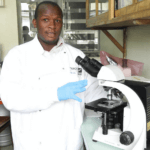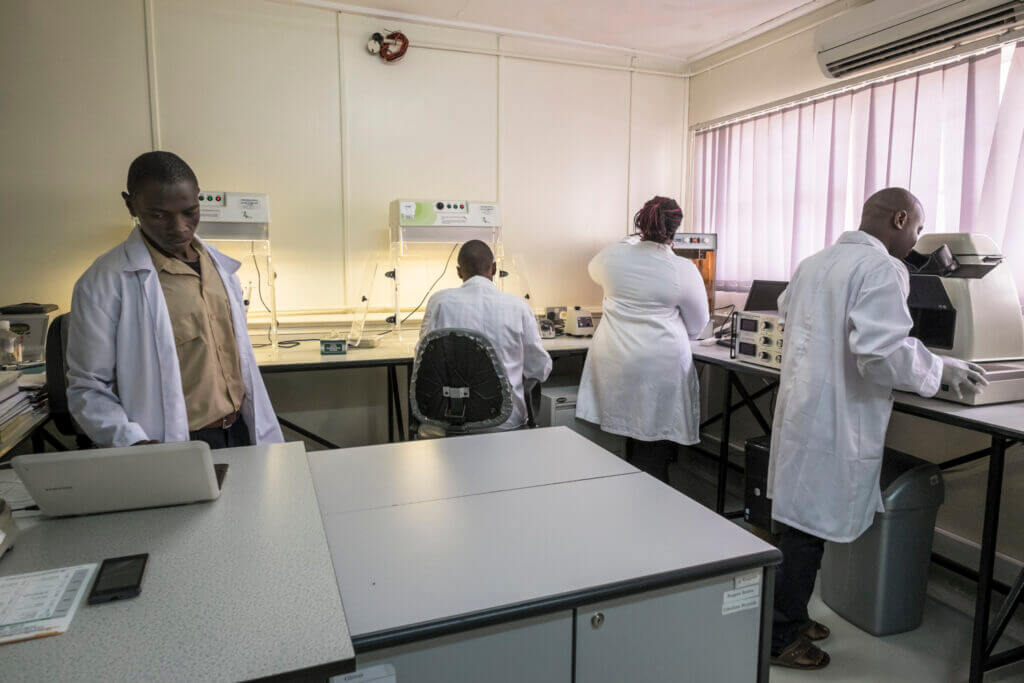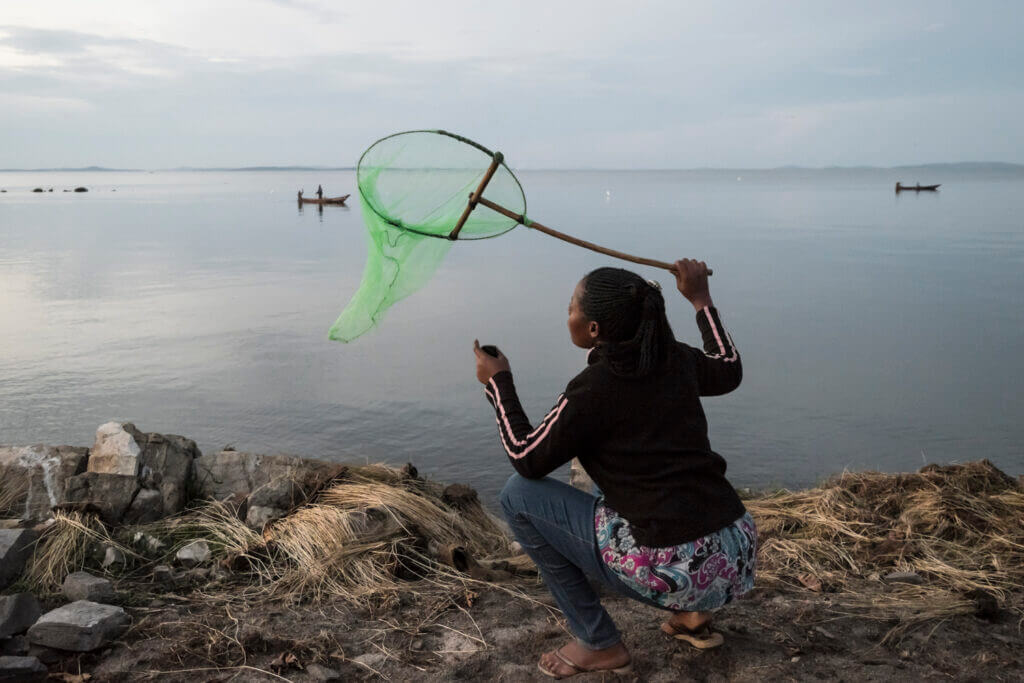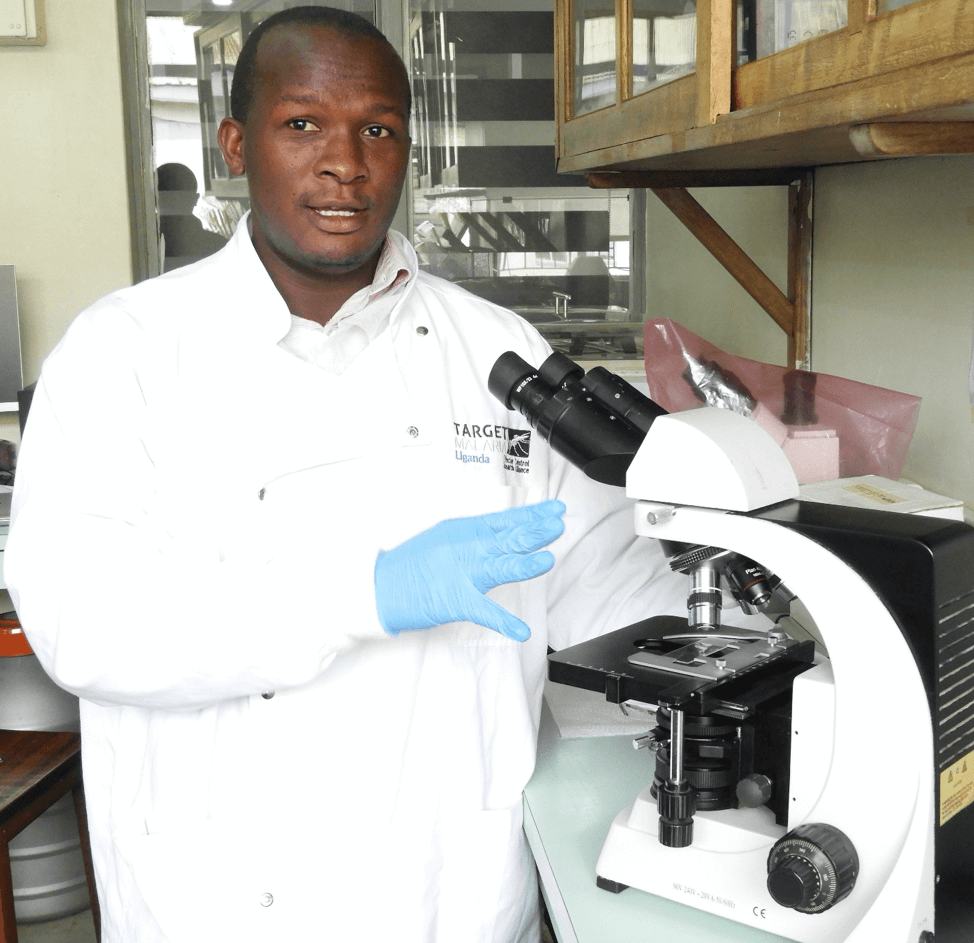What does it mean to be an entomologist?

Charles Batume is an entomologist, working at the Uganda Virus Research Institute, Target Malaria’s partner institution in Uganda.
My passion to be an entomologist developed way back in high school, when I wondered how mosquitoes were able to bite people through layers of clothing. This motivated me to delve into studying different insects and their medical importance. Today, I enjoy my work studying mosquitoes and their behaviour.
To be an entomologist, like with any other profession, requires training. This is all driven a passion and interest in pursuing this profession. As an entomologist, you must be dedicated to studying insects and their interaction with the environment, ecology and behaviour. This means spending time in both the field and the laboratory.

Entomologists and laboratory staff working in the laboratory in Uganda © Target Malaria
My favourite part about practicing entomology is being able to learn and share knowledge on the biology of disease vectors. Such information is important especially in times of outbreaks of disease. I also enjoy learning about new disease vectors that are not commonly known to people. In doing so I feel I can play a role in sharing such new research with the public and contributing to finding a solution to these diseases.
On average about 70% of my time is spent in the laboratory. This involves processing samples taken from the field, where I help identify, label, preserve and store samples. Field activities take up about 30% of my time, and I normally spend about 10 days a month doing field work.

A researcher looks for Anopheles mosquitoes caught in her sweeping net during swarm sampling activities in Uganda © Target Malaria
Aspiring entomologists should be passionate. Field and laboratory studies all entail a lot of work and sometimes one has to spend several days at field sites trying to collect insects or in the lab working on data, sometimes with no expected results, and thus may require one to go repeatedly over the process. I think an aspiring entomologist needs dedication and patience as well as be prepared to learn from other entomologists who have gained lots of different experiences overtime.

Aspiring entomologists must have an interest or passion for this field as it requires a lot of time spent researching insects and investigating the possible causes of diseases spread by insects. Field and laboratory work all require a resilient attitude as there may be times where one would spend several days at field sites collecting insects or in the laboratory repeating different processes multiple times. I think an aspiring entomologist needs dedication and patience as well as an open mindset in order to learn from other entomologists who have gained lots of different experiences overtime.
